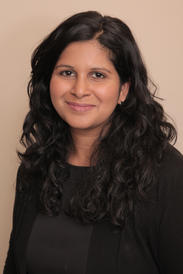The Caring Majority: Dignity for Older Adults and Those Who Care for Them
Resource type: News
Maryann Jacob Macias, Associate Programme Executive at The Atlantic Philanthropies |

All older adults have a right to quality care. Atlantic has a long history of supporting policies and standards to better address the needs of the growing population of older adults in the U.S. and abroad, and we have been proud to see many advances in elder care over our time in the field. But we know that in order to build a culture that truly supports older adults, those who care for them must also be treated fairly and with respect. That will mean a radical shift in our culture towards valuing those who give their time, love, and labor to ensure quality care for our elders and ensuring these home care workers have a strong system of fair wages, paid family and medical leave, and workplace protections.
On Friday, October 30, I joined advocates and organizers from across the country at the Grantmakers in Aging conference in Washington, D.C., to discuss philanthropy’s role in the future of aging, and the importance of supporting care workers. The Atlantic Philanthropies was proud to sponsor a plenary session, where I was given the honor of introducing Ai-jen Poo, Director of the National Domestic Workers Alliance and Co-director of the Caring Across Generations campaign, before her keynote address.
The Atlantic Philanthropies’ support of Ai-jen’s work has centered around this idea that improving the lives of aging Americans is predicated on an equal concern for those who care for them. Care workers are the women and men that make it possible for us to leave our children, our disabled and aging loved ones, every day to go to work or school or tend to other responsibilities, knowing that those closest to us are in safe, capable and caring hands. Just as we see our parents and children among those who need care, we must see ourselves in those who provide that care and to extend to the home care workers who labor for us the very same dignity and compassion we expect for our own family members. Who will care for the caregivers? The answer must become self-evident.
When I first met Ai-jen eight years ago, she shared the heartbreaking story of one of her clients who hadn’t been paid a dime in a decade of working for a family. Workers like Ai-jen’s client are overwhelmingly women, immigrants, and people of color, with their own children and aging or disabled parents to care for. I burned with rage as she recounted story after story of the exploitation and injustices these professional caregivers endured, the low pay, lack of benefits or vacation time; yet Ai-jen spoke with her trademark calm, strength, and optimism. Hope for change is the thing that keeps Ai-jen—and all of us working alongside her to transform our elder care system—blazing this trail.
It is frustrating indeed that, in the year 2015, we are still fighting for equal pay for women; basic job protections for care workers; humane, comprehensive immigration reform. Nevertheless, thanks to the National Domestic Workers Alliance under Ai-jen’s leadership, we have seen the passage of the nation’s first Domestic Workers Bill of Rights—historic legislation that extends basic labor protections to over 200,000 domestic workers here in New York State. The importance and value of this work has come to light, as has the rights of those who do it, no doubt thanks to the narrative changed by the Alliance’s campaigns.
While I celebrate the gains we have made, the philanthropic sector must continue to solidify its commitment to a path forward—and Atlantic is exiting the scene, with all grantmaking concluding in 2016. That’s why I’m so heartened to see so many caregivers, activists, funders, and nonprofit leaders uniting under the leadership of people like Ai-jen Poo. We are forging a strong commitment—from the community of funders and beyond—to improving the lives of those who came before us, who made us who we are, as well as of those remarkable people we entrust to care for them.